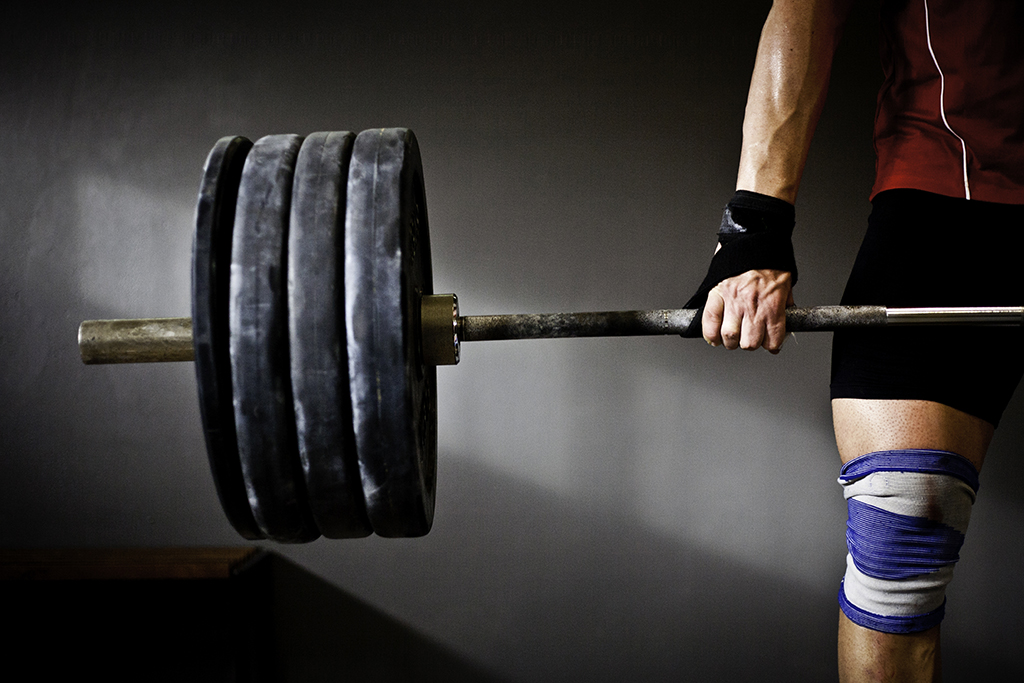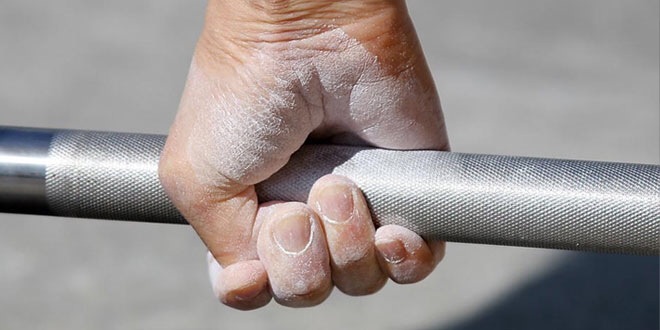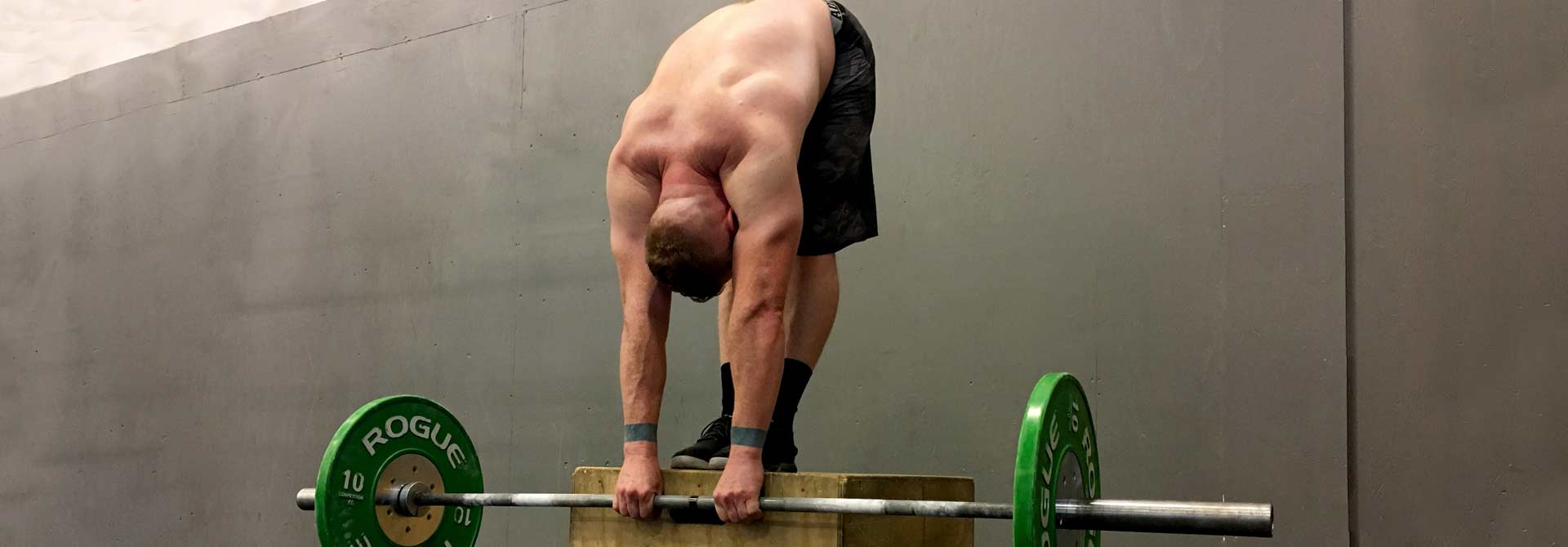In the iron game, I personally would argue that there are four dominant sports: powerlifting, weightlifting, strongman, and bodybuilding. While bodybuilding is not a sport that strictly involves moving heavy weights (at least not on stage), it is undeniably part of the history of strength sports and their popularity throughout time.
Yet among these four sports, the two that
are most often conflated are the sport of weightlifting and powerlifting. Both
sports involve full extension (getting upright, or locked out), and both sports
are about lifting the absolute most weight one person can lift within a single
repetition. Both feature several lifts with three attempts per lift, and
several weight classes (which are, on the elite level, essentially height classes
as well, save for outliers).
However, despite these similarities,
weightlifting and powerlifting are completely different sports, and while they
are strength sports, they require a very different approach to training and
competing. Let’s get right down to it, shall we?
Powerlifting is Ironically Not About
Power
In powerlifting, every athlete is given
three attempts on the squat, bench press, and then deadlift. The best three
lifts from all nine attempts are added together, creating a total. This total is
what matters the most in the sport.
In weightlifting, every athlete is given
three attempts on the snatch and the clean and jerk. The best two lifts are
added together, creating a total. Again, the total is important here, and it’s
how the sport is scored.
The squat, bench press, and deadlift are the Big 3 of the powerlifting platform, yet despite the name of the sport, they don’t have much to do with “power”. Power is the expression of force over distance at a certain speed – the more explosively something is done, the more power was used to do it. Weightlifting is a power sport. Powerlifting, on the other hand, is a sport about force expression.
Think about the difference between a punch
and a shove. Weightlifting is about throwing the heaviest punches. Powerlifting
is about showcasing the biggest shove. This doesn’t make one sport better than
the other, but it’s a useful way to set the two apart.
One way to immediately make this evident is to show anyone a video of a max attempt on the deadlift versus a max attempt on the clean and jerk. The powerlifter will visibly struggle to lockout with the weight. The weightlifter will certainly look taxed, but that bar is still going to move much, much faster.
A review of total energy expenditure during weightlifting and powerlifting revealed that powerlifters displayed a power output of about 12 watts per kg of body weight during a heavy lift, versus 52 watts per kg of body weight among weightlifters during a heavy lift.
If your 1RM on the deadlift is 350kg, then
you most definitely aren’t going to clean and jerk 350kg. The world’s strongest
weightlifters can move far more weight than they can lift on the platform, but
the nature of the snatch and the clean and jerk are that they are incredibly
technical lifts that require not only strength, but speed, technique, and
extreme patience and repetition.
The 10-Second Grind and the 1-Second
Miss
If you spend any time watching powerlifting
competitions and weightlifting competitions, you’ll notice that powerlifters
rarely miss an attempt. It happens, especially in the earlier years of a
powerlifter’s competitive career, when they’re more prone to making mistakes
during attempt selection. But the more experienced a powerlifter becomes, the
rarer a missed lift becomes.
That’s because power lifts take time. They really do. A max attempt can take anywhere from four to a dozen seconds, and there have been lifts that were even longer. That’s genuinely a lot of time spent under the bar, or over the bar – and it’s a lot of time to correct a poor position or make up for a mistake.
Weightlifters don’t have that luxury. Their lifts literally take a second, and failed attempts are very common even among top-level contenders, to the point that roughly half of the lifts a lifter will put up during their comp years might be failed lifts. This isn’t because they’re less skilled (obviously), but because you cannot course correct very much during a snatch, clean, or jerk. You can to a degree – which results in mistakes like runaway snatches – but the room for error is incredibly small.
This, in turn, also seems to inform the difference in energy between a weightlifting competition and a powerlifting competition. In powerlifting, raw strength is key. You’re trying to train your muscles to recruit as effectively as possible to move the weight. The actual technique threshold is quite low, and after maybe the first six months to one year of proper training, powerlifters will only need to adjust their technique minimally as their career goes on.
All of their training goes towards helping
their neurons and muscles cooperate more effectively and grind out max singles
on competition day. Any amount of mental stimulus to help them break past that
final barrier and access their last reserve of strength is much appreciated, be
it ammonia, a rowdy crowd, or a primal roar.
On the other hand, weightlifters need to be perfectionists about form. They’ll likely have the strength in them for a greater PR but won’t be able to fully realize that strength without years and years and years of perfecting their form, down to the last millimeter. As such, weightlifting competitions are often silent, giving the lifter a moment to compose themselves and prime everything for perfect execution of the same movement they’ve been practicing or the better part of the last decade. It’s like watching golf. Total silence. One second. And a few claps.
Weightlifting Teaches Explosiveness But Is Incredibly Sport-Specific
Weightlifting is a power sport, while powerlifting is a strength-specific sport, and the power trained during weightlifting is inarguably much more useful in many athletic endeavors than the strength-trained in powerlifting. Fighters, football players, basketball players, and sprinters would do better to pick up a power-specific sport like weightlifting in their training than a power lift.
With one very important caveat:
weightlifting is really hard, and very few high school or college
coaches are qualified to properly coach weightlifting movements. This has led
to a bit of an epidemic where “power cleans” have swept strength and
conditioning gyms throughout the country, except that these “power cleans” are
atrocious examples of how not to ever attempt a lift.
I’m no coach, but I’m not alone in thinking that other coaches need to get more serious about teaching clean, proper technique in the Olympic lifts, or to simply drop the clean entirely and focus on easier lifts like the push press, kettlebell swings, banded deadlifts (ideal for training speed off the floor while providing a heavy lockout), and jumps.
Powerlifting: Arguably More Beginner
Friendly
Powerlifting is great if you want to power lift. It’s also a great place to start if you ever find yourself switching to the sport of strongman instead. And it’s also by far the easier sport, and as such, the more economical sport. I’ve never seen a successful self-taught weightlifter. This is a sport where you need to go find yourself a club or coach to get you through the early months and put you on the right path towards clean technique. Proper weightlifting technique must start on the empty barbell.
Ideally, proper powerlifting technique also starts on the empty barbell, but it really doesn’t have to. You can get fairly good at squatting, deadlifting, and bench pressing without professional input. You can start powerlifting off YouTube tutorials. I mean that. I know several people who started that way, got pretty strong and sought a coach later on when they realized they wanted to compete.
Powerlifting is easier to pick up and
learn, and arguably safer for total beginners. I’d still tell powerlifting
trainees to go seek out someone stronger and more experienced to help you out
personally, or just go find a coach if you want to keep lifting and get to
heavier and heavier weights.
Want to lift heavier and avoid injuries? 💪🔥
Download our FREE '5-Minute Warm-Up Routine for Maximum Lifting Performance' and get primed for every workout!
Click below to grab your copy now!👇
👉 Download the Free Guide




